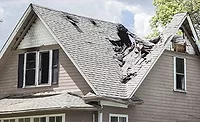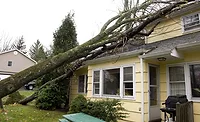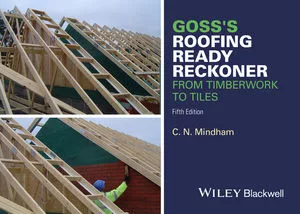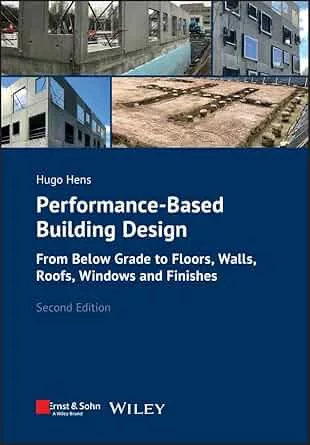Regulatory News
Under Pressure from Insurers, New Orleans Adopts Roofing Permit Requirement
A potentially complicated permit process sows confusion in The Big Easy

Roofing contractors are operating under what has been described as murky guidelines after New Orleans began requiring permits for roof replacements — without notifying the public for months. The plan is an effort to shore up the area’s property insurance market crisis.
— Image courtesy of Revival Roofing
New Orleans has quietly introduced an important change to its building regulations, requiring permits for new roofs.
The long-considered proposal, quietly pushed through City Council in February, seeks to alleviate New Orleans’ home insurance crisis through a permitting scheme that local officials hope will engender greater confidence among insurers in the city’s building codes.
Mayor LaToya Cantrell’s office reportedly spearheaded the regulatory update months ago, the news site Nola.com first reported. However, the mayor did not widely communicate the update until asked about it this week.
It’s unclear if the city is enforcing the new requirement or if roofers will have a separate permit process, raising concerns about delays and potential costs of hundreds per roof.
In a written statement, Cantrell’s office acknowledged the new rules, saying the move aims to "assist residents during the ongoing insurance crisis."
RELATED | Insurance Industry Cries ‘Roof Claims Hitting New High’
The notice added that inspections will be streamlined by allowing photos to replace in-person inspectors, adding "the routing pathway for residential re-roofing permits is being finalized with final adjustments expected by close of business Friday."
Cantrell's office added that staff intend to do outreach on social media and with open houses.
The code has already been updated and requires contractors to pull a permit for renovating 50% or more of the roofs on single and duplex homes. In practice, a permit is already required, but it is unclear whether the city has yet to enforce the change.
Minor roofing work, defined as less than 50% replacement, is exempt from permitting unless it meets “other criteria” that would otherwise require a permit.
Housing advocates have consistently pushed for this update in Orleans Parish to bolster insurer confidence in New Orleans’ building codes. Although they appear robust on paper, they have proved to be a paper tiger following major hurricanes that swept countless roofs away over the last few years.
Supporters are optimistic that insurers will be more inclined to offer policies in the hurricane-prone region if the city uses a permitting process to enforce what is ostensibly mandated.
Jefferson and St. Bernard parishes implemented similar changes in past years. A state law passed in 2023 allows contractors to verify that roofs are built to code by taking geotagged and time-stamped pictures instead of requiring in-person inspections.
Those parishes also have a separate track for roof permits, which allow them to be put on quickly and for a lower fee than other permits.
It remains unclear what fee New Orleans intends to charge for the permits, but the updated code does allow for geotagged photos instead of on-site inspections.
The regulation’s new language was adopted at a City Council meeting last February without discussion or debate — the city councilman who sponsored the changes deferred comment to Cantrell’s office.
Konstantin Bogdanov, the owner of Master Maintenance Roofing, expressed his support for the city mandating permits. In a state prone to natural disasters, “storm chasers,” the oft-used pejorative term for fly-by-night hucksters who are often unqualified, have long taken advantage of the lax oversight.
However, Bogdanov was surprised by the obfuscatory nature of the regulation’s rollout. He said he only learned about the change after a project became bogged down by delays, due to being automatically placed into the city’s permitting system. H
“They just kind of piled it on, saying we’re going to require a permit now,” he told The Times-Picayune. “They didn’t notify the public … just half-baked stuff.”
Time is Money
Another roofer notified The Times-Picayune of the change, saying he contacted the permit department and was told the city was not enforcing it yet. If the city fails to create a distinct track for roof permits, it may cause considerable delays for the industry.
Roofers usually work swiftly, installing new roofs on homes within a day or two to address leaks or insurance issues.
Dan Mills, head of the Home Builders Association of Greater New Orleans, pushed New Orleans to add the change for months. The group also helped to convince Jefferson Parish officials to enact their permitting requirement.
However, Orleans Parish has developed a reputation for slow-moving permitting, which is not instilling confidence in the region’s roofing trades.
Mills said after Ida, insurers told builders that there was no way of knowing whether the thousands of new roofs were built to code because of a lack of permitting data. Requiring permits, he said, allows the city and state to back up the work.
“Insurers are not afraid to write hurricanes,” Mills said. “They’re afraid to write housing stock they don’t understand.”
Mills said the current code is a “whisper” away from FORTIFIED, the above-code standard that the state has championed to help people get discounts on insurance premiums.
RELATED
Louisiana Passes ‘Fortified’ Legislation, Gives Homeowners Climate-Related Roof Protection
The state has set up a grant program to give homeowners $10,000 each for a new FORTIFIED roof, which has been so successful that demand has often outpaced the money needed for the program to run unabated. The Legislature is debating a series of bills to enhance incentives and possibly require FORTIFIED roofs in some cases.
Jackie Dadakis, CEO of Green Coast Enterprises, a company focused on sustainable development, expressed her support for the state establishing uniform guidelines, noting the enhanced clarity for the insurance market.
“I can understand the concerns roofers have with the pace (that) safety and permits [have] been moving recently,” Dadakis said.
Looking for a reprint of this article?
From high-res PDFs to custom plaques, order your copy today!








